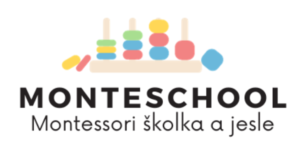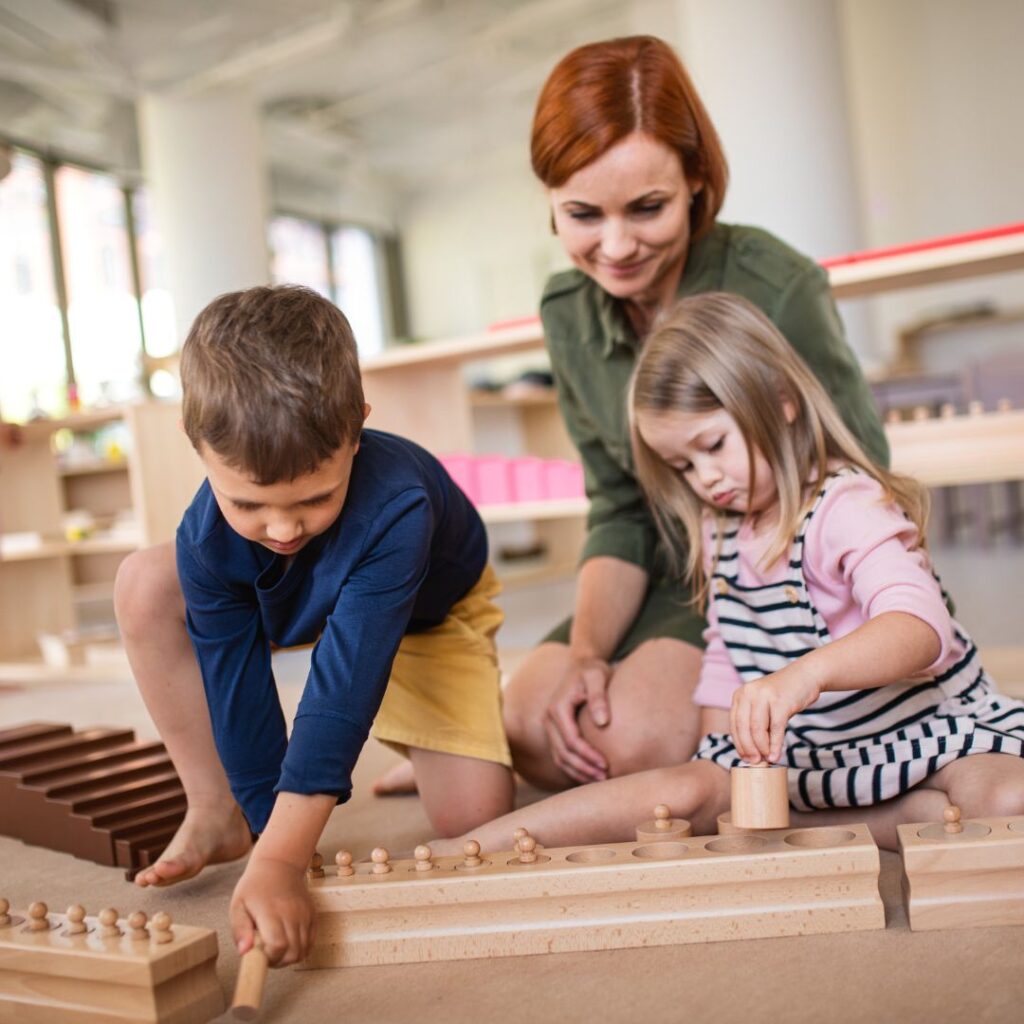The Montessori method is a progressive approach to the education of preschool children. However, there are persisting misunderstandings about what Montessori truly means. In this article, I will address what Montessori is and what it is not, and describe how it generally looks like in a Montessori school.
What is Montessori?
Montessori education is not just a teaching method. It’s a philosophy that approaches a child with respect, individualized attention, and actively fosters independence. For example, children learn to dress themselves, prepare food and drinks, take care of themselves, and their surroundings. A child develops holistically in a Montessori school.
Emphasis is placed on their social and emotional aspects by talking to children during social interactions, creating model situations, and guiding children towards respecting others and showing kindness.
Through beautiful Montessori materials made from natural materials, children develop fine and gross motor skills, senses, pre-mathematical and mathematical skills, pre-reading and reading skills, and general knowledge about art and the functioning of the world. This whole concept was developed by Italian physician and educator Dr. Maria Montessori. (More about Dr. Maria Montessori).
Key principles of Montessori education include:
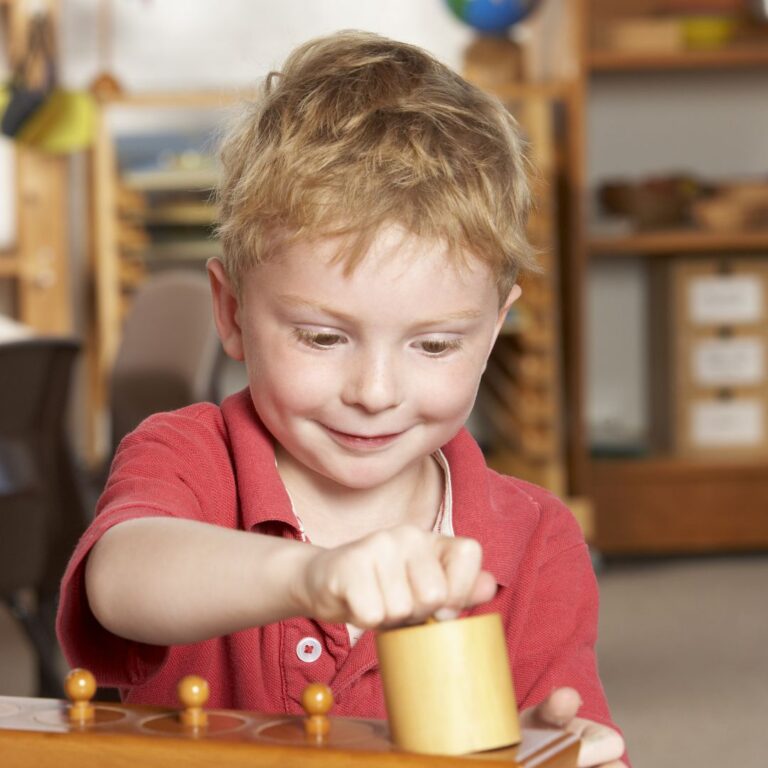
Respect for the child:
In a Montessori school, teachers respect each child’s unique abilities, interests, and pace of development, creating an environment where children feel valued and supported. Montessori sees children as active participants in their educational process, not just passive recipients of knowledge. So when you enter a Montessori classroom, you’ll see natural movement of children, each child busy with an activity they deeply enjoy and are deeply immersed in. Some children work with materials, some take care of the environment (watering plants, sweeping the floor, or dusting…). The teacher works with others either individually or in small groups of other children. Some may rest in a quiet corner on a pillow and look at books.
Prepared Environment:
When you enter a Montessori school, you will experience a carefully prepared environment that supports the curiosity and exploration of each child. From practical life materials to sensory materials, materials developing mathematical concepts, language skills, and cosmic education, each tool serves purposefully for the holistic development of children and encourages independent learning.
Mixed-age groups: Montessori classrooms typically include mixed-age groups, allowing children to learn from each other. This fosters group cohesion and cooperation among children. Older children naturally take on leadership roles, and younger ones learn from more experienced peers.
Child-led learning:
In Montessori education, children have the freedom to choose activities according to their interests and progress at their own pace. Teachers observe children attentively and provide individual guidance and support as needed. Montessori materials incorporate error control, so the child discovers the correct result independently without the need for adult interaction. They learn to learn, explore possibilities, and work with their own results without comparing themselves to other peers.
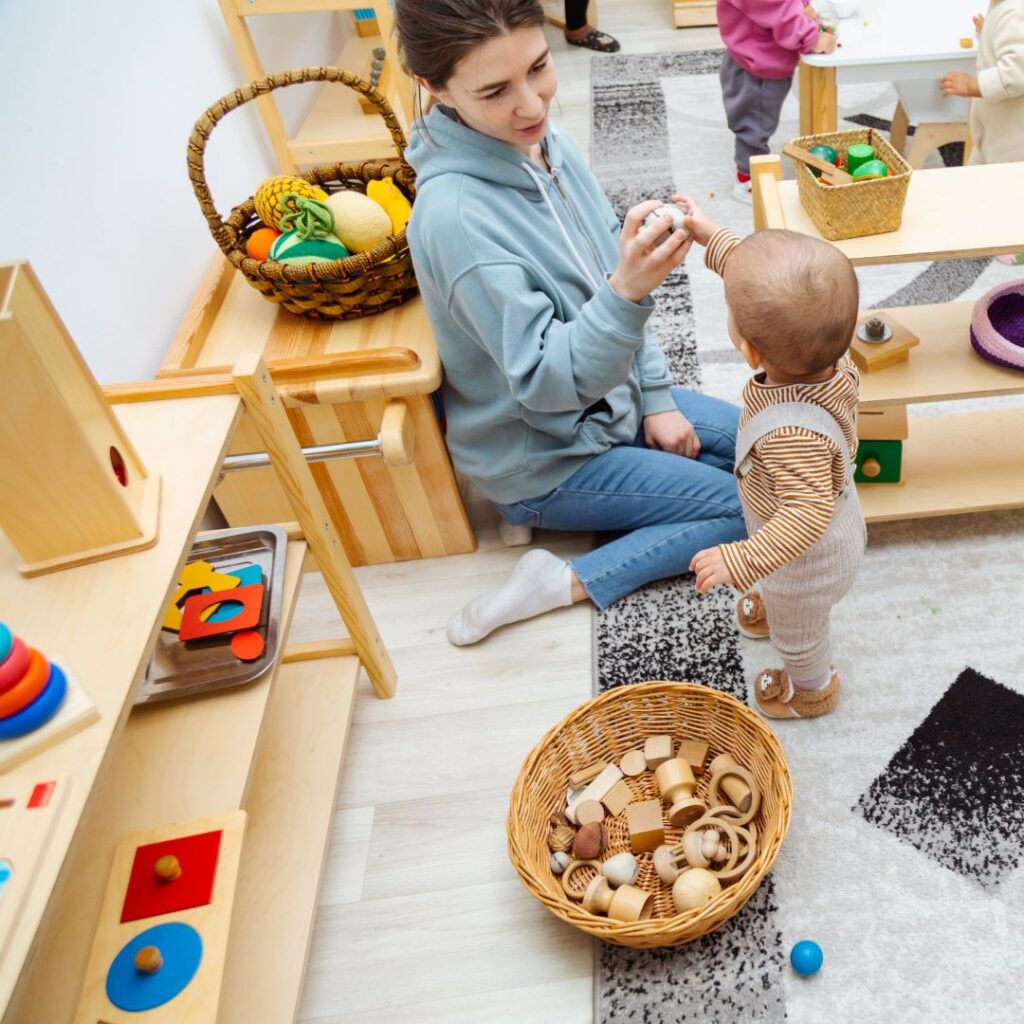
What Montessori is not
In Montessori schools, boundaries are essential for creating a safe and respectful learning environment. Children are encouraged to explore and learn independently, and loving boundaries help them maintain safety and order. These are rules for handling materials, interacting with other children, teachers, and animals. Children learn to function in society among other people.
Unqualified teachers:
Montessori teachers undergo specialized training in Montessori pedagogy, and their education does not end there. They attend further professional courses and training, and above all, conduct research on children, which allows them to provide individual support tailored to each child.
What to Expect in a Montessori Preschool?
When you step into a Montessori preschool, prepare for a truly special experience. Inside, you will find: A warm and welcoming environment where children are at the center of everything. It’s a place that celebrates their uniqueness and encourages them to spread their wings, independence, creativity, and critical thinking from the very beginning.
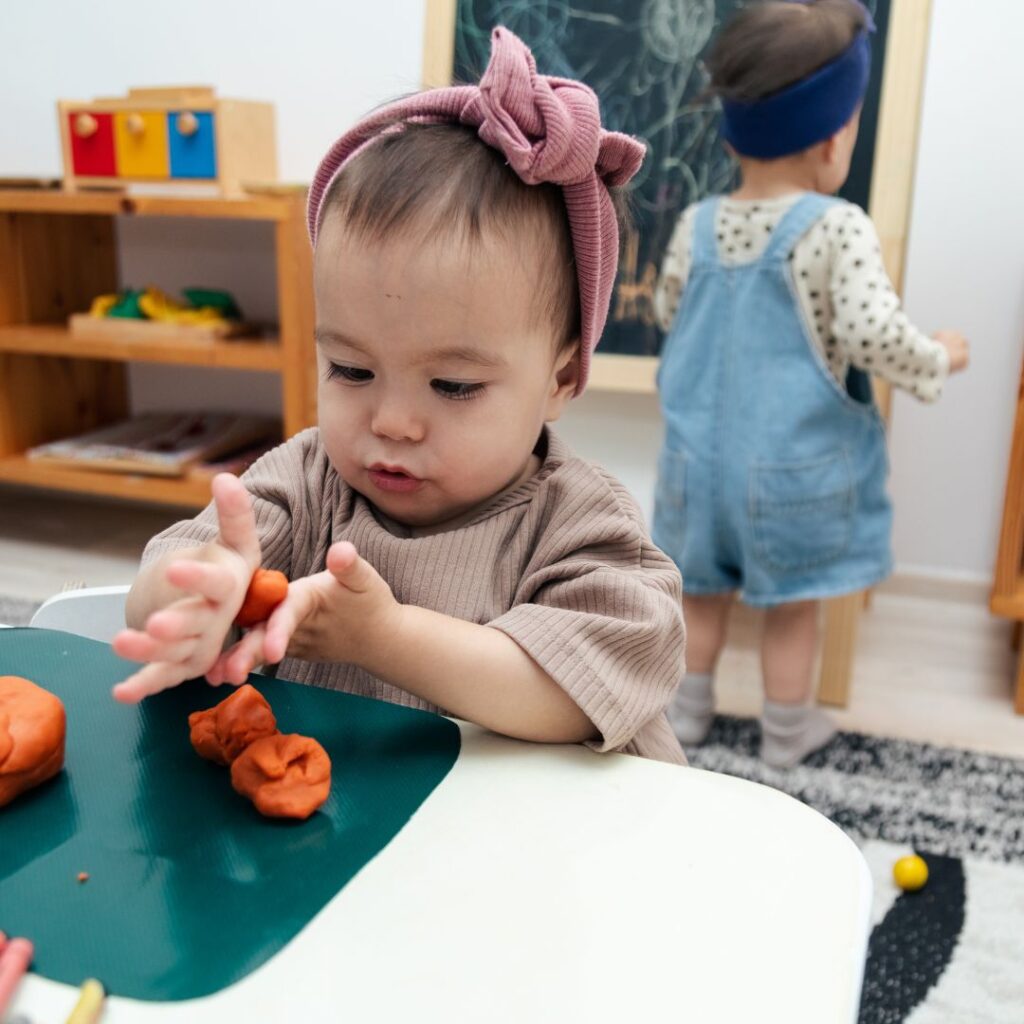
Wherever you look, you’ll see materials that invite exploration. From practical life materials to sensory, mathematical, language, and cosmic materials. These materials awaken children’s curiosity and invite them to deeply immerse themselves in the world of knowledge. But what truly sets a Montessori preschool apart are the relationships you’ll see. Teachers and children actively communicate with each other with mutual respect and understanding. You’ll see children of different age groups working and learning together. Montessori schools have mixed-age classrooms, allowing collaboration among children. Older children learn to lead younger ones, and younger ones learn from older ones. Together, they learn to communicate with respect, solve problems and conflicts, and these skills will serve them throughout their lives
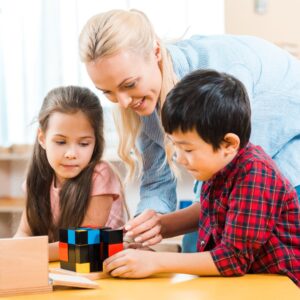
In conclusion Montessori is more than just a teaching method – it’s about promoting respect, independence, and individualized learning, allowing each child to shine in their own unique way. It’s a path to a better society and education for peace and democratic principles.
Therefore, I warmly invite parents to join us on an enriching journey at our planned Montessori school Monteschool. Together, let’s create an environment full of love where children can flourish and thrive. We look forward to working with you to make a difference in the lives of our future generations.
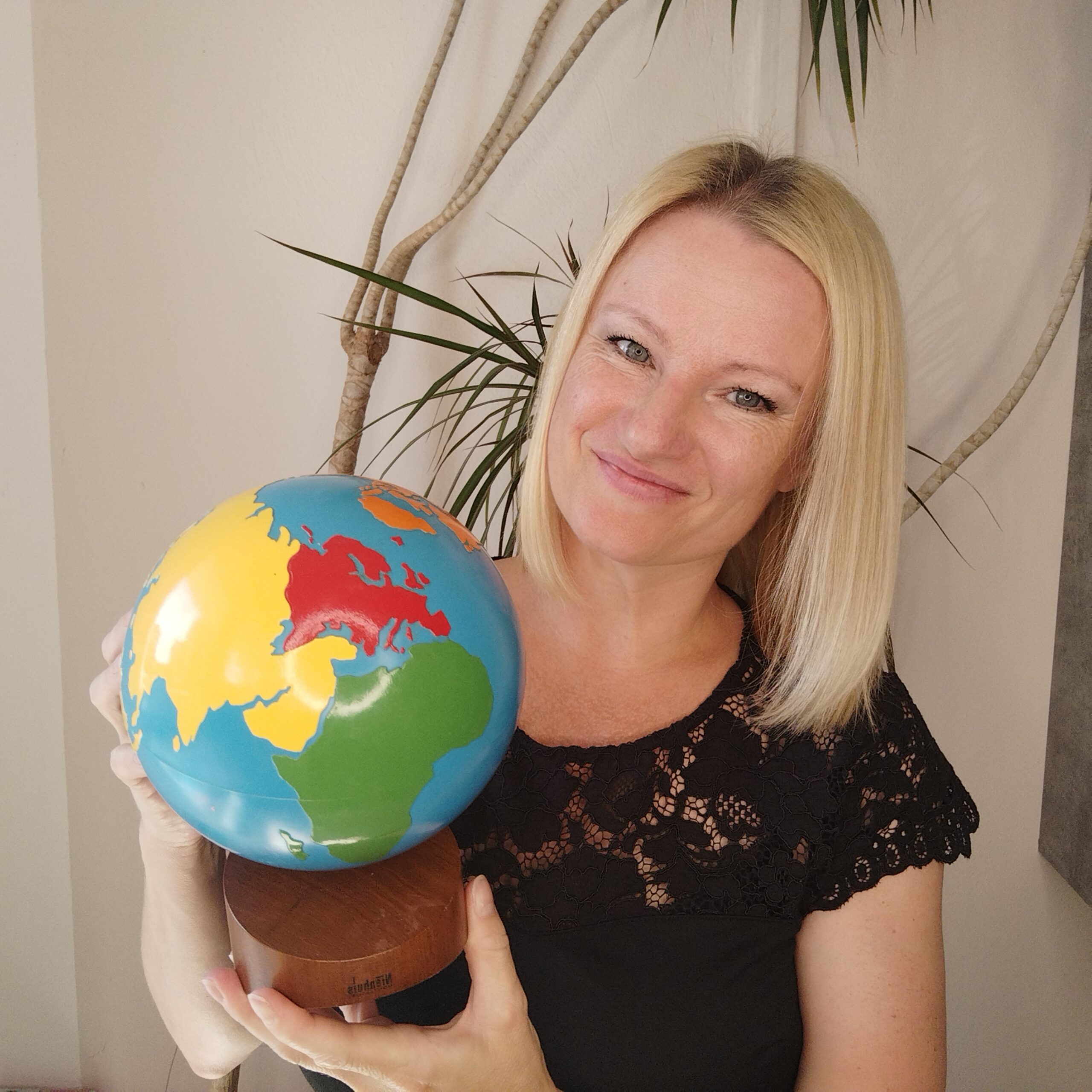
I support a compassionate approach to children and focus on creating a safe and stimulating environment where they can grow and develop their full potential.
Podporuji laskavý přístup k dětem a zaměřuji se na vytváření bezpečného a podnětného prostředí, kde mohou růst a rozvíjet svůj plný potenciál.
